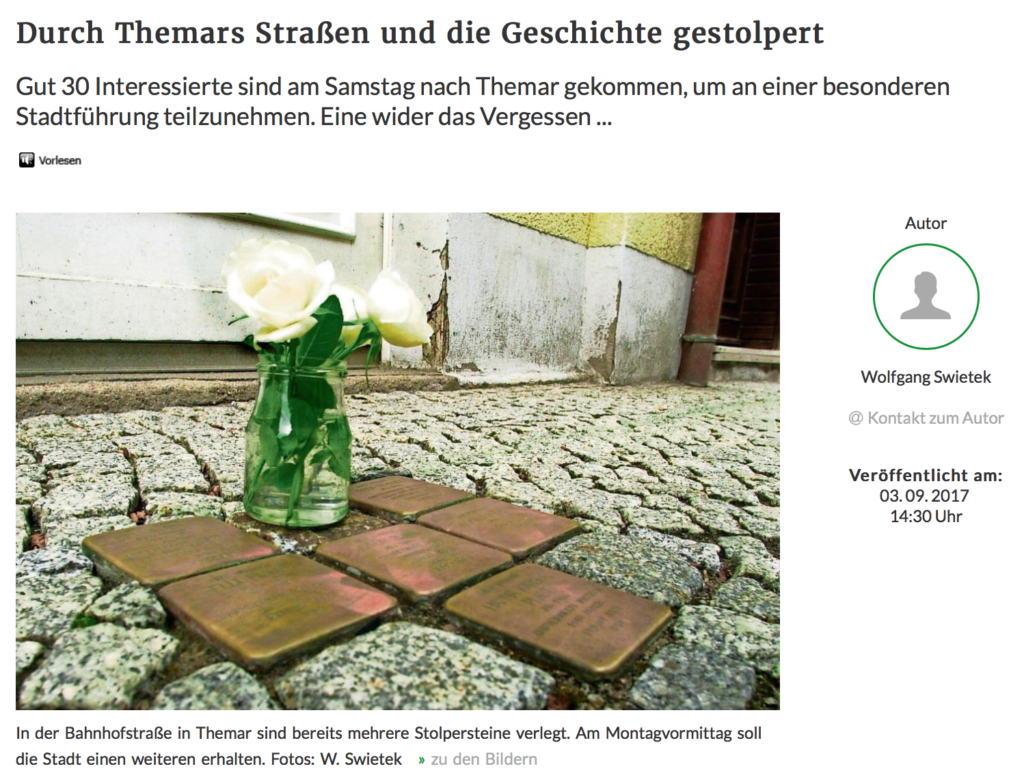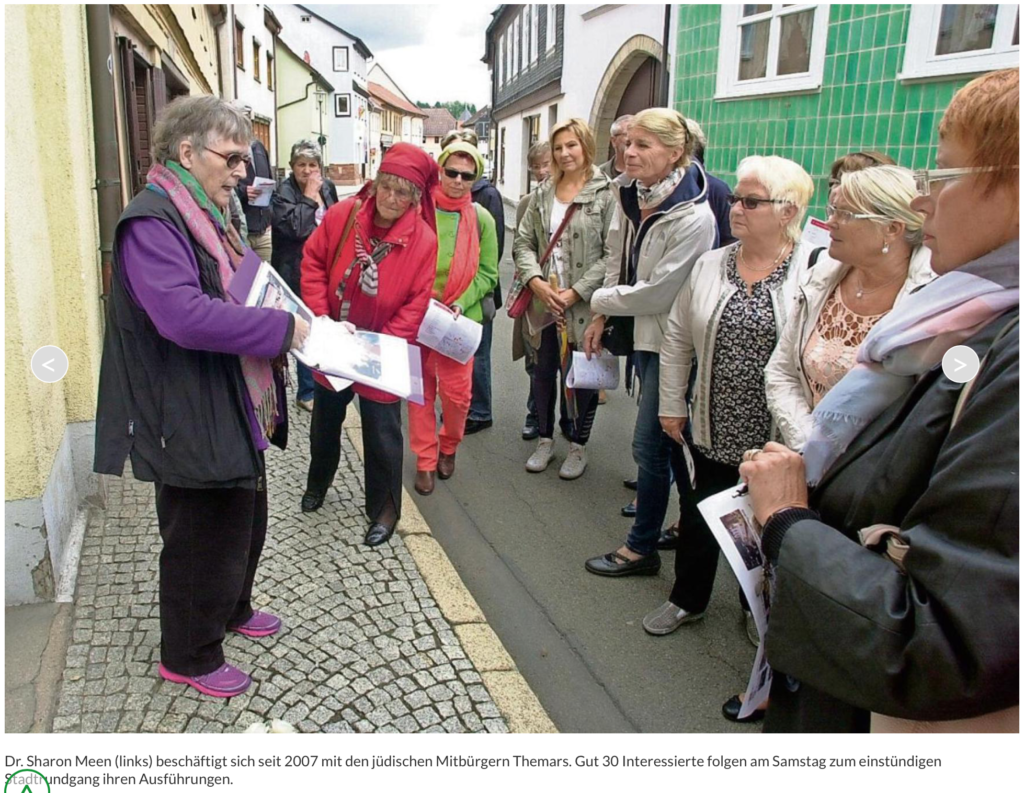Themar – “Stumbling blocks” are already lying in front of houses in Themar. There, where once Jewish fellow citizens lived. “They are not meant to be gravestones,” says Dr. Sharon Meen. “But some second- or third-generation descendants probably feel that way. They have said to me, ‘Finally, I can come to rest knowing that my ancestors have found a final place.’ Until now, I only knew where they were killed.’ But for us, the Stolpersteine should be a sign that we will never forget this dark chapter of German history.”
Sharon Meen’s words sound almost apologetic: “I am not Jewish, nor am I German. You may wonder why I of all people – a Canadian – am so intensely concerned with the history of German Jews.” The University of British Columbia professor, who is a volunteer researcher at the Vancouver Holocoust Education Centre, has a simple explanation. In 2007, she says, a young man came to her with a box full of letters from his ancestors in Germany that he couldn’t read. So she helped him translate them. What she read about National Socialism, about the deportations to concentration camps, about the Holocaust, affected her. So much so that she became more and more intensively involved with it, researching it, until she had the wish: “I have to go to the place where it happened, I have to have been in Themar at least once. Maybe I’ll find out more there.”
In 2008, she realized her wish. And in the meantime, the honorary citizen of the town has been to Themar more than once. Almost every year she comes here one and even several times, meets people who have the same concern – to learn more about the former Jewish fellow citizens. Mayor Hubert Böse is one of them, and Barbara Morgenroth and many others.
Sharon Meen did not take long to ask when Christine Hartung from the Bündnis für Demokratie und Weltoffenheit Kloster Veßra (Alliance for Democracy and Openness to the World) asked her to give a guided tour of the stumbling stones that have been laid so far and the families concerned. Asked, done. On Saturday afternoon the time has come. More than 30 interested people accepted the invitation to a special kind of city tour. Members of the “Association Themar meets Europe”, who have been involved from the beginning, but also visitors from outside, who are confronted with the topic of Stolpersteine for the first time.
Sharon Meen had a lot to tell about the Jewish citizens of Themar. There had not been a ghetto for them here, as in many other places. They lived all over the town, were integrated in the best sense of the word, ran their own businesses or craft enterprises, and were recognized and appreciated by their German fellow citizens. Until the National Socialists came to power … They defamed, persecuted and murdered them. “They were all German Jews. German by identity, Jewish by faith,” says Sharon Meen. They fought in World War I as soldiers “for the Fatherland,” alongside their fellow Germans. It was only after 1933 that they were treated as second-class people.
“Here, where we are standing now,” adds Barbara Morgenroth, …, “was a Jewish department store. A banner across the street urged the people of Themar: ‘Don’t buy from Jews!’ Across the street, in the inn Zum Grünen Baum, men sat watching through the window who nevertheless went shopping, and then betrayed them.”
In the meantime, it is around 3 p.m. A good hour has passed. And Sharon Meen is taking her time to talk about the five families whose lives she has researched in particular. What is she particularly proud of? On several occasions, she has reunited descendants who are now scattered all over the world – from the USA to Canada and Australia to South America and Israel. Through Meen and her research, they have come to this very place – especially for the reunions – because their love for Themar and their longing for the site of their ancestors has remained unbroken all these years.
This will also be the case this Monday morning, September 4, at 9 a.m., when Stolpersteine will be laid for the Rosenberg and Kahn families. Twelve relatives have announced their visit. In the evening, Lotte Schäfer, the daughter of Julius Rosenberg, who was born in 1934, will give a lecture on the history of the two families. And all this to remember what once happened here.

